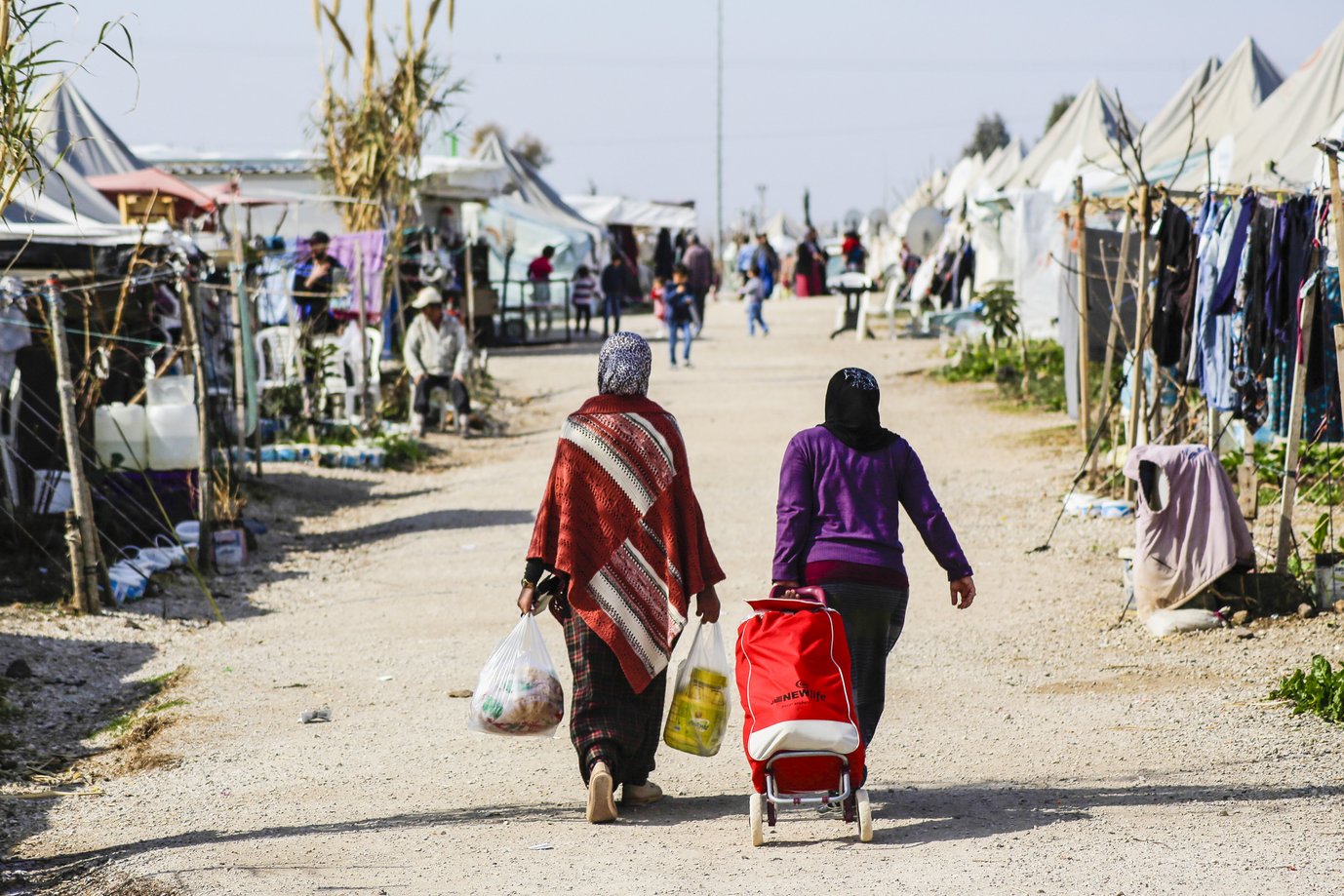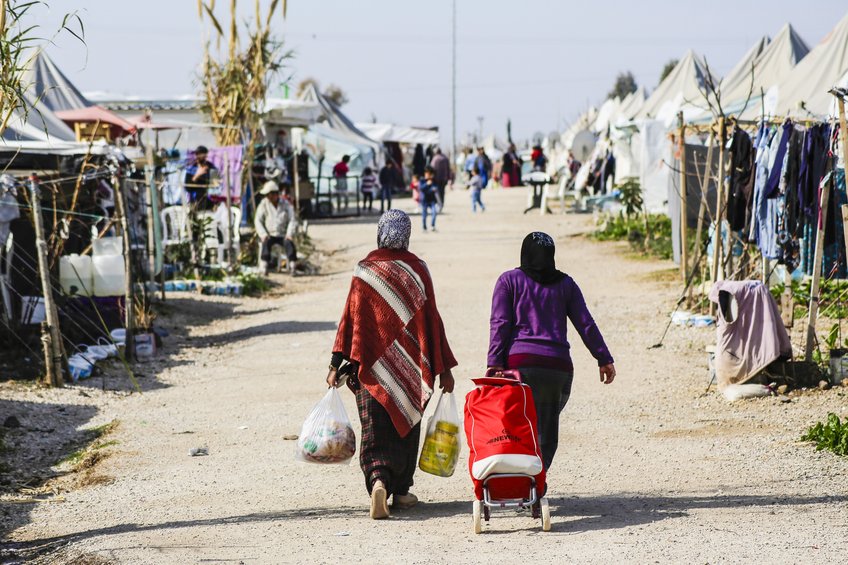Refugees as a Prey (not only) of Autocrats
An autocrat using migrants to blackmail the European Union - the current situation at the EU borders to Belarus is not new. Winfried Kluth suggests a paradigm shift on the question of how the EU and the international community handle migration, with the development of additional legal pathways.
In two other related blogs, VULNER's scientific coordinator Luc Leboeuf discusses the potential of border screening procedures to deal with surges in migration towards EU borders – provided that the implementation issues are adequately tackled to prevent creating multiple camps at the EU borders, where asylum seekers might remain stuck in precarious conditions over a long period. Sophie Nakueira, leader of the African research team, adds a non-European perspective illustrating how Uganda deals with migration at its border by prioritizing humanitarian protection needs.

The majority of global migration processes are legally formalised. At the same time, there are increasing illegal interventions by third parties among refugee and economic migration. The international community, as well as the European Union, is confronted with the question of how to handle this phenomenon.
Besides smuggling, the selfish measures of autocrats have gained importance in recent times. The current behaviour of the Belarusian autocrat Lukashenko marks a new level of escalation. He uses protection seekers from third countries for his political purposes. The European Union is struggling to find measures that are both effective and in line with political and legal principles.
It is not new that autocrats trigger flight movements. Nor is it new that they sometimes try to gain their own advantages by intervening in migration processes. One example is the so-called EU-Turkey deal with which the European Union aimed to relieve the member states. Turkey has received in return extensive financial payments, but has not granted permanent residence permits to refugees, especially not from Syria. Moreover, Turkey pursues additional political goals in the context of its antipodean policy by resettlement programmes, which intend to settle refugees in Syrian areas, populated by Kurds. This shows how refugees are variously used for different purposes. The European Union responds with a protection system that is not in line with its own humanitarian standards. In return, Turkey takes advantage regarding political negotiation with the European Union and regarding its own geopolitical ambitions. Against this background, recent attempts of similar third-country agreements in the context of the Belarusian/Polish border, as voiced by political consultant Gerald Knaus, must be viewed critically. Refugees would only be used again to facilitate single member states without providing sufficient protection.
On the contrary, the crucial question is, whether there is another way to address these provocations by autocrats. Thereby, the European Union is not able to reform its own common asylum system. Also, the attempts of accelerated procedures at the EU's external borders cannot redress the actual problem. They ignore the fact, that migrants are dependent on territorial access to EU member states to trigger the relevant procedures, which might provide protection or at least reduce the possibility of deportation.
A future migration management therefore only has a chance to succeed if it shifts crucial procedures to the countries of origin. Procedures at the external borders do not reduce the dangers of migration routes or combat smuggler-activities. Neither can they prevent the current activities of autocrats.
The United Nations showed with their Global Compacts on Refugees and for Regular Migration that a stronger responsibility of the UNHCR and the IOM is necessary. This is also logical, because only the international community is legitimised to realise respective procedures in all parts of the world. In addition, this may handle threats locally. Technically this would mean a further development of embassy asylum, which would be subject to a specific quota. More than 70 years after the 1951 Refugee Convention this would also specify the objective of solidarity on the part of any participating state. Instead of the single states, the UNHCR would carry out application procedures in the regions of origin according to formalised standards. This has to be supported financially and/or in terms of personnel by the international community. In the same way, the IOM could operate regarding economic migration, especially with respect to unskilled labour migration. The already existing bilateral agreements could thus be expanded and standardised.
It is obvious that this approach needs considerable efforts and requires a new paradigm within the international and European migration regime. The previous right to a procedure as soon as one has entered the territory of a member state would be replaced by procedures in the regions of origin. Since the member states have enabled fair access to the asylum procedure at international level, this would at the same time allow a stricter approach to refusal, considering the recent case law of the European Court of Human Rights. However, special regulations might be still necessary.
Still the question has to be clarified, how the European Union's protection framework may be incorporated within this system, since it is broader than that of the Geneva Convention. In this respect, the question should be raised, whether an extension of the humanitarian protection framework or an extension of the unskilled labour migration framework is more useful. As the Western Balkan provisions have shown, certain intersections between the two paths of migration already exist which could be used at international level.
More than any other approach, this kind of migration management may reduce the influence of smugglers and autocrats on migration processes and give priority to the interests of those seeking protection. By adopting the two Global Compacts, the United Nations have already revitalised the discussion about more institutional responsibility at the international level. This should encourage us to pursue this approach. For example, this means to implement the provision of the Global Compact for Safe, Orderly and Regular Migration by enabling the transfer of social benefit entitlements to the home country if the residence is terminated. There are many problems that are not easy to solve but which should be manageable if the overarching goal is effectively promoted. From the perspective of the European Union, this also allows to overcome the political blockades and to develop a common approach. The utopian character of this proposal should not discourage one from dealing with it, as many other international projects have faced a similar initial situation.
A German version of this blog entry was first published as an editorial in the German law journal ZAR.
